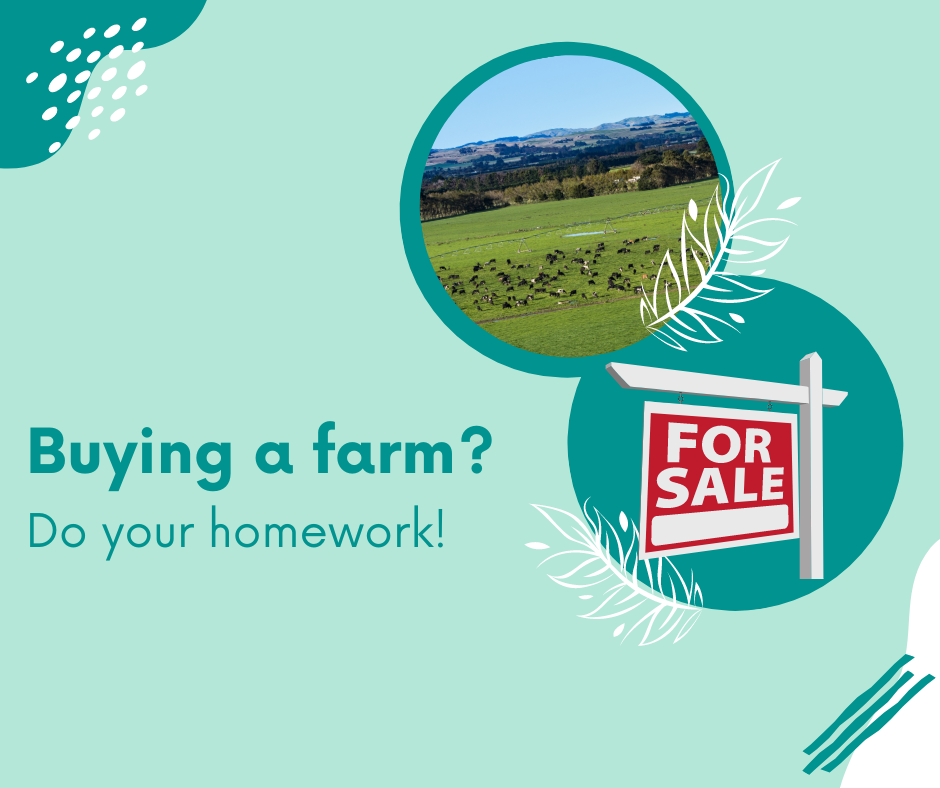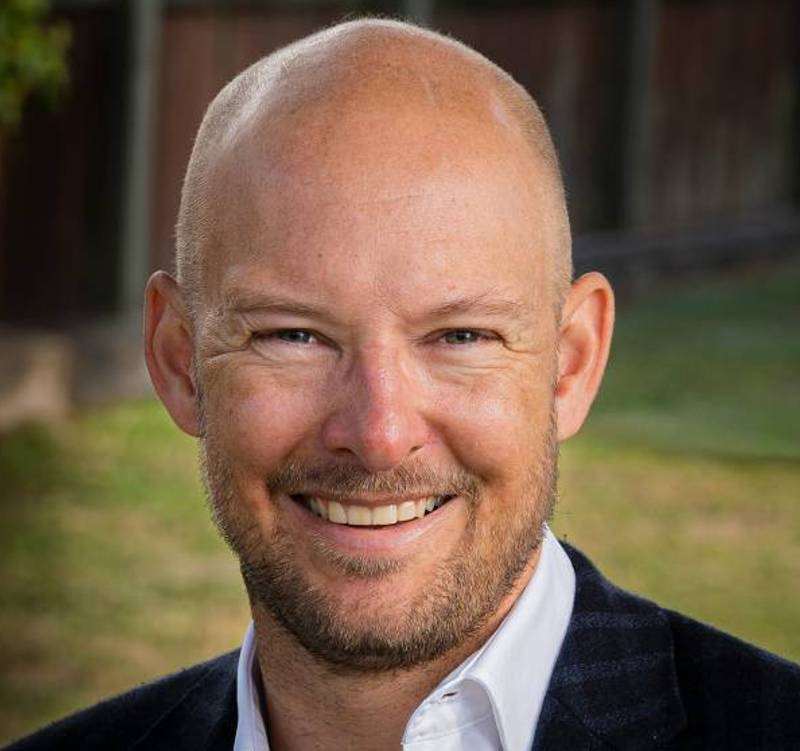
25 Jul Buying a property? Get your due diligence right!
By Rachael Mitchell, Senior Consultant
The original version of this article was published in Country-Wide Magazine in April 2022
Farmland due diligence has always been carried out by purchasers to varying degrees – from talking to stock agents about the quality of animals on the property, right up to full scale financial and agronomic modelling.
But farm sales are now more complex, and the levels of due diligence need to lift to accommodate these complexities.
Legislation is complicating things. New regulations at regional and national levels are in play, a notable example being the National Environmental Standards (NES) for Freshwater Management.
From 2nd September 2020, the NES Freshwater became law, imposing regulations across a wide range of activities, including winter grazing on crops, dairy support, dairy platform, and irrigation on dairy properties.
Even in regions experiencing little impact from the regional council, the NES for Freshwater Management now applies. In areas where regional plans are in place, any activity or land use change must comply with relevant regional plans and the NES. If two similar regulations exist, the most restrictive applies.
Know the status of the property
Under current and future legislation, what were once accepted as inalienable rights (to subdivide, winter crop, etc) are no longer guaranteed.
If you’re purchasing farmland, it is imperative to know the status of the potential property. If the vendor or agent can’t provide you with good information on the property’s 2019-20 status, you may be restricted to farming in line with the vendor’s operation, or even less intensively.
Even if the existing system can be continued, understanding compliance with the relevant regional plan and any liabilities will also be important, for things like GHG costs, nitrogen loading and annual consent to farm.
Other due diligence questions need to be asked to discern the true cost and value of the land. What are the liabilities of the property? How does your proposed system compare with the 2019-20 year?
Can you subdivide?
Are you intending to subdivide the land to offset a purchase price? If you are, know that new legislation on Highly Productive Land will create an obligation on regional councils to preserve the best land in their region as production land (Land Use Capability Class 1-3). Any plans to subdivide may meet significant roadblocks.
The Cost of Biodiversity
To complicate things further, an exposure draft of the National Policy Statement for Biodiversity is also in the pipeline for later in 2022.
After pushback from farmers around the identification and treatment of Significant Natural Areas (SNAs), amendments have been made. Even so, phrases such as ‘maintain and increase biodiversity’ are likely to remain in the documentation.
The definition of wetlands also has purchase cost implications. If the 50m² description is still in place, properties with lots of springs could face significant fencing headaches, not to mention the weed control that is likely to be required in the stock excluded areas.
On an existing property, you must mitigate all the regulatory restrictions to make your system work. However, when purchasing a new property, you need to look beyond how great the farm looks and evaluate how you will be able to farm that land within 2 to 5, or even 10 years.
A worthwhile investment
$5,000 will get you started on basic due diligence – farm visit, researching the legislative restrictions on the property, modelling your planned future system and reporting. That may seem expensive but given the seven-figure purchase price of most farms and the possibility of unseen costs, this is a small price to pay. Far better to spend due diligence money up front than be stuck with land unfit for the purpose for your operation.
There’s another upside to getting expert help. As you go through the due diligence process with your consultant, you’ll gain insights and information that will enable you to begin evaluating future properties yourself.
The role of real estate agents
On the one hand, real estate agents are engaged by the vendor to sell their property for the best possible price. On the other, they also have an obligation to ensure potential buyers are sufficiently informed about the property to make an informed decision.
Due diligence is your personal responsibility. Better to know beforehand that your ideal property might not be so perfect, than to have bought it and then not be able to farm it as you had wished. It is your responsibility to ensure you are fully informed – as the saying goes, ‘caveat emptor’ (buyer beware).
It is not all doom and gloom
There is good buying to be had by informed purchasers. Proper due diligence will give you the surety you need to buy with confidence.
Planning for future planting, fencing or land retirement can all be incorporated into the initial budget you present to the bank. Knowing that these expenses are in the pipeline and having a plan to pay for them will help reduce stress levels when the new regulations kick in.


